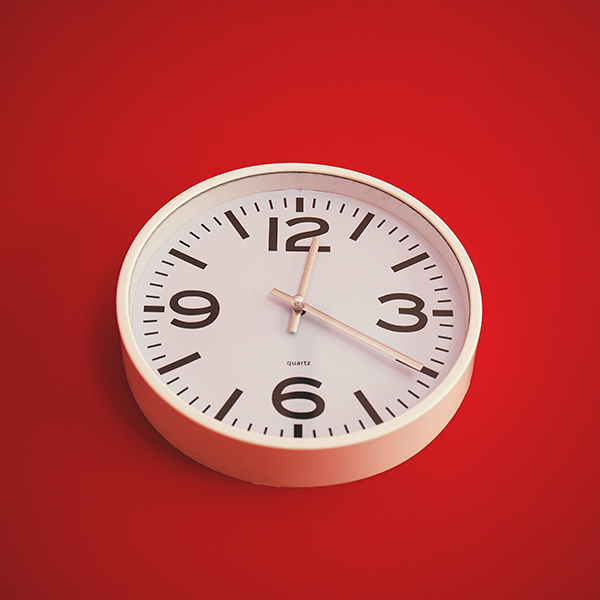 Last August, my wife and I celebrated our tenth wedding anniversary. I met my wife Sarah when she was 18, and I was 22, and we were working for the same church, overseeing the youth and children’s work. We dated for around 18 months before I popped the question, and we began planning our big day. Finally, in August 2010, we got married in West London (where Sarah had grown up) and set up home in East London.
Last August, my wife and I celebrated our tenth wedding anniversary. I met my wife Sarah when she was 18, and I was 22, and we were working for the same church, overseeing the youth and children’s work. We dated for around 18 months before I popped the question, and we began planning our big day. Finally, in August 2010, we got married in West London (where Sarah had grown up) and set up home in East London.
Ten years later, and as I’m sure has been the experience with most couples, the lockdown has brought opportunities to grow as a couple, as well as challenges to overcome. Additionally, to throw into the mix of a rather unusual year was the birth of our first child, our daughter Elsie who was born in April 2020.
I’m aware it’s a cliche, but becoming a parent changes everything. Your life shifts in a heartbeat from being (let’s be honest) somewhat self-involved to revolving around this tiny new family member who you can’t imagine life without.
Over the last 12 months, we’ve learnt to adjust to spending lots more time together, to being parents, to me working from home and doing all of that with minimal support from friends and family. It’s been a steep learning curve but reflecting, here are a few key lessons I think we’ve learnt:
You and your spouse are not the same people.
I know this sounds obvious, but I know it is something I need to remind myself of constantly. If you haven’t read Gary Chapman’s book, The Five Love Languages, can I thoroughly recommend you do as it’s been one of the most helpful books we’ve read on relationships in ten years of marriage. I think we’ve both learnt that knowing how your partner is looking to communicate their affection, as well as the ways they are looking to receive affection, is a real game-changer. If you’ve not read it, the book suggests five love languages: words of affirmation, gifts, acts of service, quality time, and physical touch. I am all about acts of service! I will run to the shop to buy Sarah chocolate, hang that wallpaper she loves so much, set up Sarah’s computer so she can zoom her mum, do the laundry, clean the bathroom, get up early with Elsie… Now you might be thinking that either I’m bragging or lying, but all this is usually for nothing as Sarah craves quality time. Me running off to buy chocolate makes perfect sense to me, but I’ve just abandoned her. I love running and will regularly take Elsie out in the running buggy, offering Sarah an hour’s peace. Again, while this seems like a selfless act of heroism to me, Sarah is left feeling unappreciated and disconnected. Knowing how you are both choosing to give and receive love will go a long way to helping provide a far more harmonious marriage
Find things you can do apart
I think for most couples, lockdown will have brought a new level of intensity to your relationship. Whilst working from home and always being around each other, one of the things we’ve found essential is finding something you can do for yourself and things you can do as a family. Especially with the added pressure of being new parents, it’s easy to lose yourself in that.
A helpful question to ask is, what are the things that give me life? It might be exercise, reading, or gardening or even having a bath but figuring out what your ‘life-giving activity’ (or LGA) is and ensuring you do it regularly is essential. I love running, and my wife loves pilates. An essential part of our marriage is making sure Sarah intentionally makes time to do pilates and that I make time to go for a run. The keyword there is intentionally. It’s not going to happen by accident, you need to put it in the diary, or it won’t happen.
It’s also important to remember this builds your relationship, and so it’s important not to feel resentful of the other person as they do their LGA. A 30 min run makes me a much better spouse than spending those same 30 mins with Sarah; you need to remember the long term benefits.
If you’re a parent, there can be added guilt to contend with, but you need to remember this will make you a better parent. Sometimes it’s possible to find ways to integrate being a parent and your LGA (I quite often will run with Elsie in the running buggy). Still, it’s important not to feel guilty or resentful if you don’t manage that; remembering letting your partner do their LGA might be the most loving thing you can do for your spouse.
One of the things we’ve noticed since becoming parents is how easy it is to chat about nothing but Elsie. I mean, she’s amazing, but there are other things in the world! Pick a few points in the day to chat beyond the mundane. It doesn’t have to be all deep and meaningful. Questions like where you’d go on holiday if money wasn’t an issue, what DIY project you’d love to do in the house, what activity or skill you’d love to do… I think it’s just breaking the monotony of talking about what you’re having for dinner or if you’ve changed the baby’s nappy! You might find attaching these conversations to activities can help. We’ve found going for a walk helps loads. I’m so easily distracted that stepping away from everything helps give us space to just chat.
Don’t stop date night
When you think of date nights, its easy to remember pre covid with romantic restaurants, the theatre and drinking nice wine. It’s easy to believe that with lockdown, date nights don’t matter, but I’d say they matter more now than ever. It doesn’t have to be anything fancy; we find just having an evening where we don’t turn on the tv can be one of the best date nights, but just doing something different, be that a puzzle, cooking together… it’s just about spending time together and talking.
Ask for help
One of our mantras is “we’re a team”. It’s so easy to try and lone-wolf it, for good and for bad reasons. But ultimately, marriage is about being a team. Talking something through might help you figure out a solution, be that around how to solve a work problem or see the other side of a sleep regression; either way, acting as a team will make the situation much easier to deal with, guaranteed!



